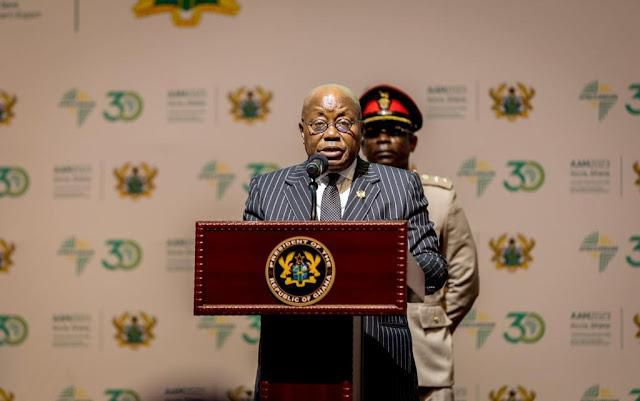Opinion: Investors losing confidence in Ghana is an emerging concern
)
Once heralded as one of Africa’s most promising economies, Ghana is currently facing a series of challenges that are shaking investor confidence.
Economic instability
Ghana’s economic growth has slowed down significantly, with the country’s GDP growth rate declining from a high of 6.5% in 2019 to just 3.4% in 2023.
This slowdown has been attributed to a variety of factors, including the global economic downturn, reduced commodity prices, and internal economic mismanagement.
The decline in key sectors such as agriculture and mining, coupled with rising inflation and a depreciating currency, has made the economic environment more volatile and less predictable for investors.
Currency depreciation
The Ghanaian cedi has been under considerable pressure, losing about 30% of its value against the US dollar over the past year.

This depreciation has increased the cost of imports and raised inflation, which in turn has eroded the purchasing power of consumers.
For investors, the unstable currency means higher risks and lower returns on investments, making Ghana less attractive compared to other emerging markets.
High debt levels
Ghana's public debt has soared to alarming levels, surpassing 75% of the country's GDP.
The government’s borrowing spree to finance various infrastructural projects and social programs has raised concerns about debt sustainability.
High debt levels have led to increased interest payments, which now consume a significant portion of the national budget, leaving less room for productive investments and social spending.
Credit rating agencies have responded by downgrading Ghana’s creditworthiness, further dampening investor confidence.
Political uncertainty
Political stability has been one of Ghana's strengths over the years.
However, recent political tensions and the government's handling of certain policy issues have created an environment of uncertainty.

Contentious debates over new tax policies, land reforms, and regulatory changes have left investors wary of potential abrupt shifts in the business landscape.
Moreover, upcoming elections have added to the uncertainty, with concerns about the government’s ability to implement necessary but potentially unpopular economic reforms.
Regulatory challenges
Investors have also raised concerns about the regulatory environment in Ghana.
Bureaucratic inefficiencies, inconsistent policy implementation, and a lack of transparency have been significant hurdles.
The business community has often complained about the slow pace of regulatory approvals and the unpredictability of government decisions, which hinder long-term planning and investment.
Social unrest
Social unrest and protests over economic hardships have also contributed to the negative sentiment among investors.
High unemployment rates, especially among the youth, coupled with rising living costs, have led to increased public discontent.

Frequent protests and strikes disrupt business activities and pose risks to investor operations.
Ghana’s economic prospects remain a matter of concern for both domestic and international investors.
The combination of economic instability, currency depreciation, high debt levels, political uncertainty, regulatory challenges, and social unrest has created a perfect storm that threatens to undermine investor confidence.
To restore faith in the economy, the government will need to take decisive action to stabilise the macroeconomic environment, improve regulatory transparency, and address the underlying socio-economic issues.
Only through comprehensive and sustained reforms can Ghana regain its status as a favourable investment destination.
)
)
)
)
)
,fit(112:112))
,fit(112:112))
,fit(112:112))
)
,fit(112:112))
)